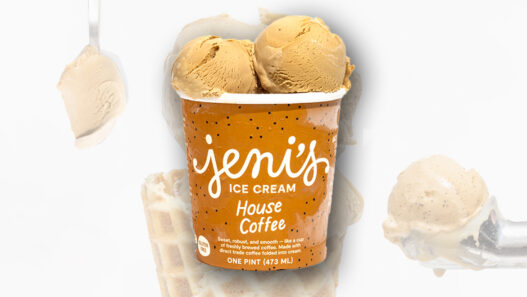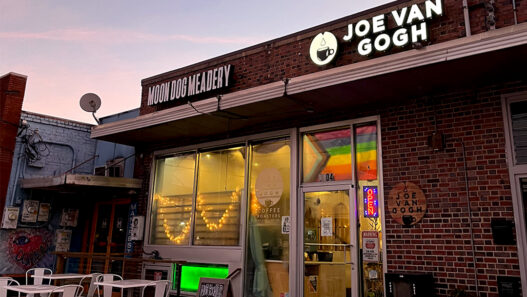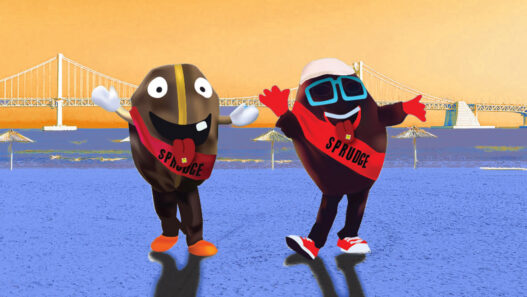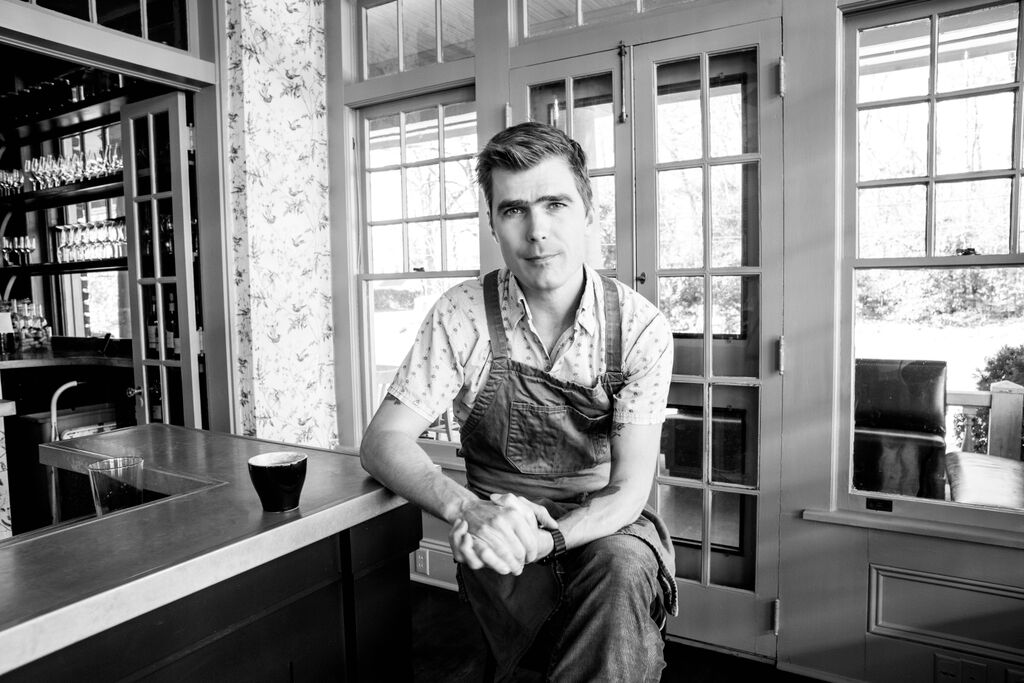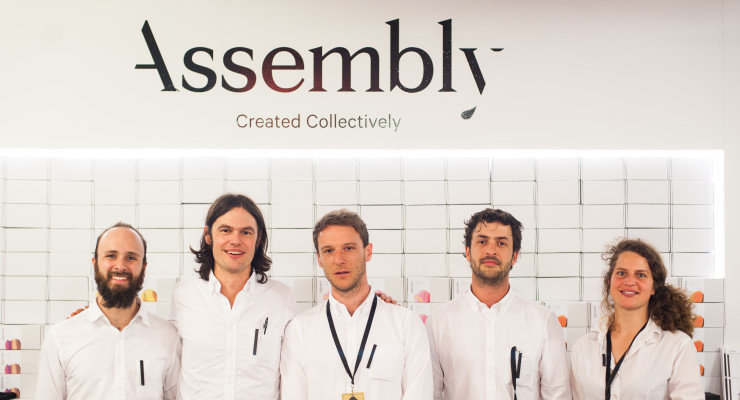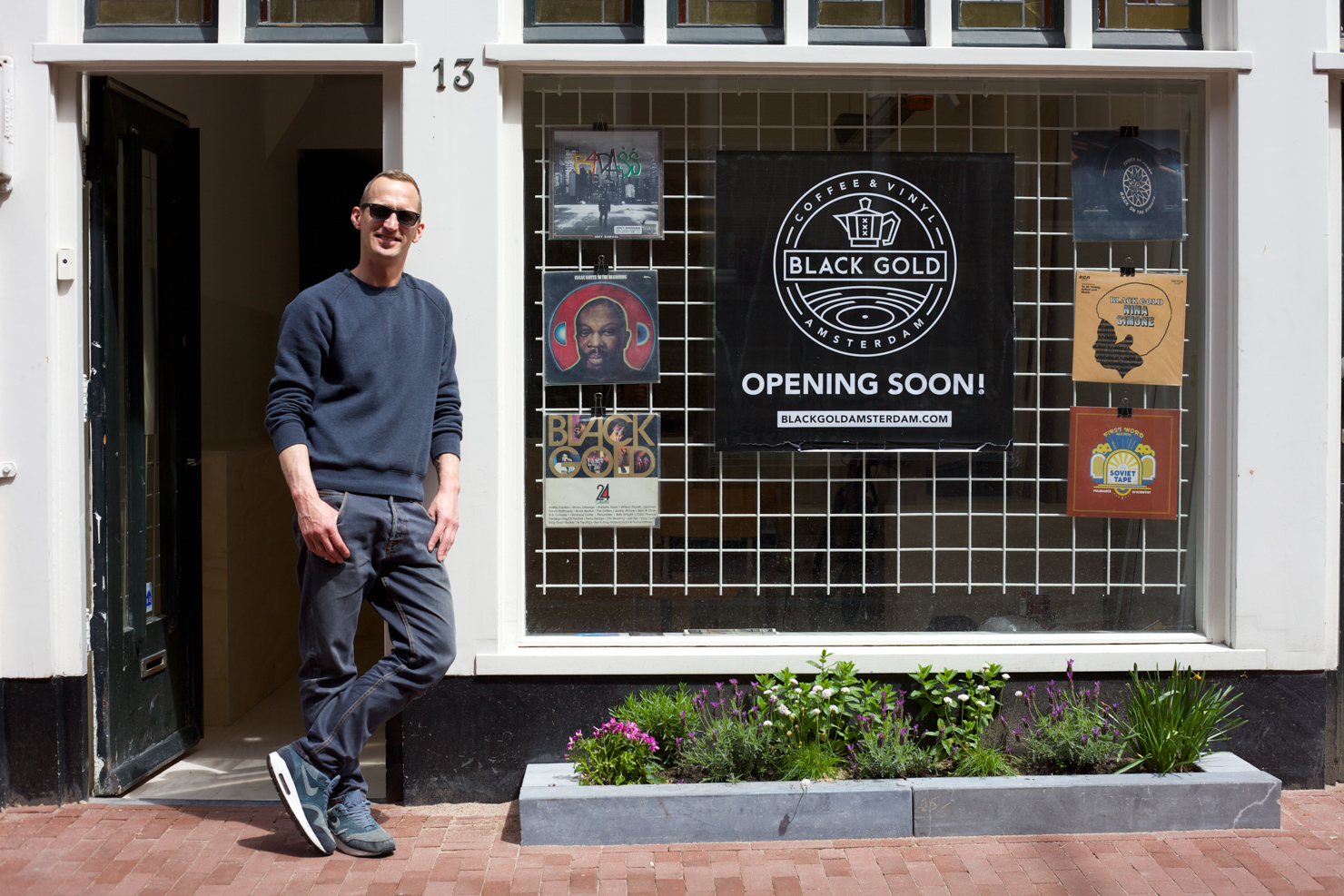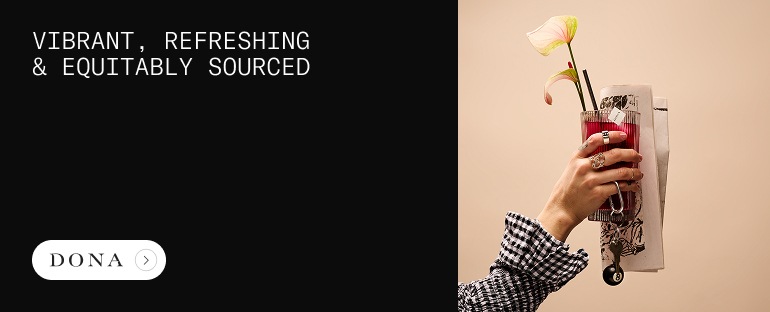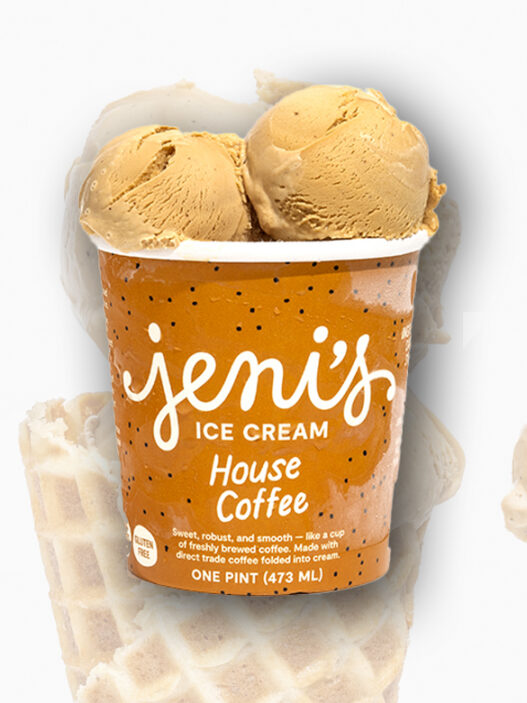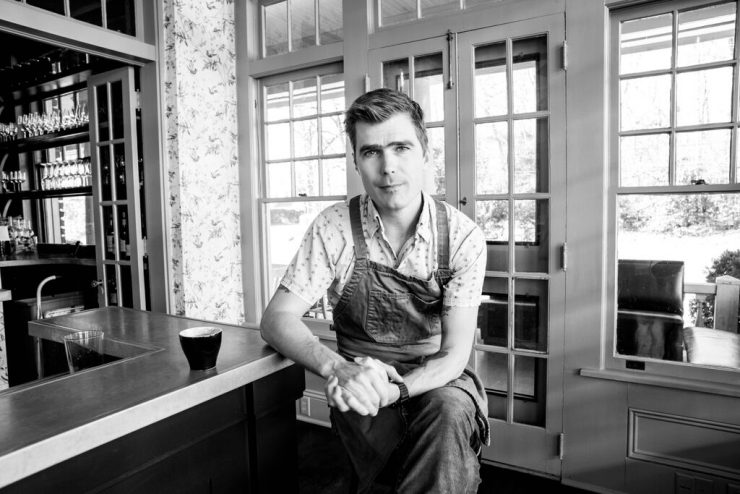
Chef Hugh Acheson is a couple of kinds of rare. He’s a chef on TV (he’s judged several seasons of Top Chef) whose restaurants don’t suck: Acheson’s Atlanta flagship Empire State South has gone through cycles of acclaim, for their food, bar, and wine programs, and Acheson’s other restaurants in the sleepy college town of Athens, Georgia have been honored regionally and nationally. He’s a celebrity chef (sorry for using that term) who’s happy to deflect props to his staff: Acheson’s sommelier, Steven Grubbs, garners national write-ups in-between touring with his punk band. And perhaps rarest of all, he’s a chef who quite thoroughly gives a damn about coffee: we’ve featured the exemplary coffee services at Acheson’s restaurants previously on Sprudge, and had the opportunity to interview the chef about all things coffee back in 2013.
It was perhaps inevitable then that Acheson would someday open a dedicated coffee bar. That time is now, with Spiller Park Coffee in the works and destined for a prime location inside Atlanta’s newly iconic Ponce City Market lifestyle and retail reclamation hub. Spiller Park Coffee—”a Major Leage coffee shop”, as per Twitter–is a collaboration between Acheson and his coffee lieutenant, Dale Donchey, an Atlanta coffee lifer with a decade of experience in the industry, working previously for Method Coffee Bar (now closed), Octane Coffee, Steady Hand Pour House (also now closed), and in Brisbane, Australia at Wolff Coffee Roasters.

Rare though he may be, Hugh Acheson’s a great interview, and he sat down with us alongside Dale Donchey to talk details on Spiller Park, the state of restaurant coffee, and the city of Atlanta.
What can folks expect from Spiller Park Coffee? Give us the 500 foot overview.
Hugh Acheson (HA): When we started planning for Empire State South, we knew we wanted a great coffee program within it. Then Dale took the program over and made it awesome. As we’ve grown, I’ve found it’s really important to make sure we’re giving chances to people to learn, and if they’d like, to become key people within the company. And it becomes an opportunity for us to grow together.
Dale and I started figuring out the idea together, and then waited for the right developer to come together with the right deal, the right talent. That came into fruition with Ponce City Market and Jamestown Properties—it’s the old City Hall East, and it was a Sears distributorship for a long time. It’s the second largest brick building in North America—a million square feet.
There’s a food court, beautiful high-end retail, and we’re going to be in a massive kiosk right in the middle. This fit our talent—Dale is a great operator in the food space. I get him to curate and I guide the space when it needs guiding.

Where is it exactly?
HA: The buildings spans an entire city block, a massive block, and Spiller Park will be right in the dead center of the main part of the building. We’ll be open in about 4-5 months, with September 1st as the target.
I should mention we won’t be the first cafe in Ponce City Market. Batdorf & Bronson’s Dancing Goats was PCM’s first tenant, and they’ve created a close-knit coffee community around that space and done a phenomenal job—but we feel the Ponce City Market project is so big, that there’s room for growth and more. Dancing Goats is going to serve a lot of destination people while we hope to cater to the people who live and work in the building itself, or folks doing a number of other errands.
How big will the kiosk actually be?
HA: 500 square feet, with stools all along the exterior, and seating for around 25-28 people.
Dale Donchey (DA): The landscape of things, where that Dancing Goats is, is like a half a mile or so from where we are. It’s a very comfortable space difference; it is not right next door, it’s just the same neighborhood. You can kind of compare Ponce City Market to the Chelsea Market in Manhattan—it’s the same property group creating both—but it’s really more like the Google block across the street from Chelsea Market. It’s this massive space, sprawling and old.
What’s the food program going to be like?
HA: It’s a pretty confined space, so food will be on the smaller portioned side. We looked at Buvette in the West Village for inspiration; it’s a place I love—if you order a little plate of lamb, it’s chilled with salsa verde, and they slice it right there—and we want Spiller Park to be like a coffee extension of that. Think little tartine sandwiches or a beautiful avocado toast with local radishes, a little simple salad and grain salads. A limited menu, 5-6 items, all small plates.
To me, a coffee shop should be the original idea of what a restaurant was—a place to rest and take a load off. I think restaurants have become more show and pomp and circumstance, and made that notion more complicated than it once was, and coffee shops have moved into that realm. It’s a place to have a 20-minute break and recharge your jets—maybe with a small plate of food curated for that purpose. Pickled shrimp salads, small plates, pickles and things like that.
Also, a lot of donuts, because we like donuts.
Are you making the donuts?
HA: Nope, we’re gonna outsource to Sublime Doughnuts, one of our first outsources ever. They do great work and we want to support them.
What coffee equipment are y’all gonna use?
DD: We’ll have two two-group La Marzocco Linea PB espresso machines, two Mazzer Kony grinders, a Mahlkonig EK43 grinder and a Marco Eco Boiler water tower for Kalita and Chemex brewed coffee. We’re tentatively looking at batch brew options, but I’m still figuring that out—we want to take more of a G&B approach to the bulk brewing, to keep it out of site so we can talk more about coffee. It’s not an afterthought.
HA: I brew every day at home on a Technivorm Moccamaster, and I have for 10 years. It’s a beast. We do Fetco batch brewing at Empire State South, and then we break it off and go to pour-over at 11AM.
What coffees will be served at Spiller Park?
DD: George Howell is the first one I want to feature—I’ve always loved that coffee. I’ve worked with it for years and it’s underrepresented in this part of the country. We also want to feature Phil & Sebastian and 49th Parallel, as well as Intelligentsia and Kilogram teas. Some of these coffees will rotate; I’m not sure we’ll be so crazy busy to sell four brands at the same time, but George Howell and Kilogram will always be in the mix.
What will the presentation be like for your tea program?
DD: Back to basics again, with traditional teapot brewing for those at the counter, and good old-fashioned tea bags for to-go stuff. Sparkling is something I’m really interested in, but again, with the tight space, we’ll need to see how that goes.
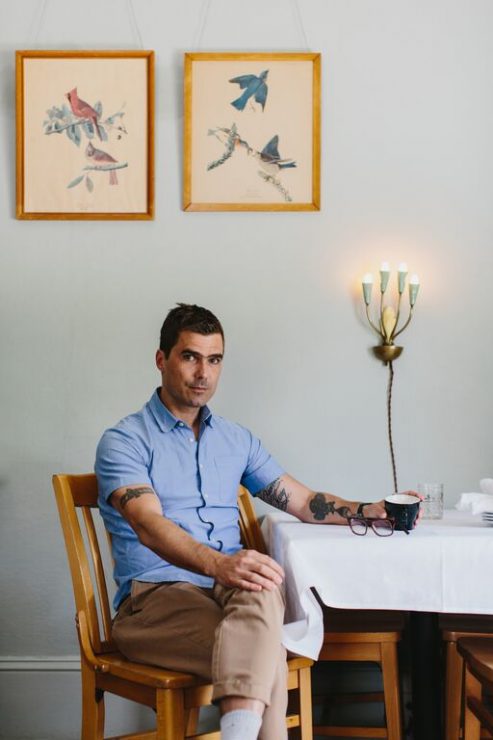
Atlanta is a really interesting place—cafes and restaurants are super important as public spaces because so much of one’s time is spent in a car, in traffic. What do you think is the main characterization of the Atlanta coffee scene?
DD: I think that me personally, when I think of Atlanta and what is valued in a coffee shop and why it’s so important to Atlanta, it’s that you have to be part of your community. You can make amazing coffee here and serve amazing teas and have all the education in the world, but at the end of the day, if you aren’t part of that community and connecting on the other side of the counter, you won’t be successful here. People here strive for characters—people here care about the other characters in the book.
HA: More and more in the last five years, Atlanta has embraced being a genuine city. It took a long time figuring that out…it tried to figure that out in the 90s, with the Olympics and stuff, but now you see this growth of these independent spirited places…they’re just real. The coffee shops in Atlanta are exuding that sense of community space and thankfulness, genuine Southern hospitality. Octane is a prime example of that—they’ve got a great vibe going on, and it’s relaxed. It’s a place that’s real.
We’ve got such a depth of history here we’re coming to terms with everyday. Atlanta is this amazing historic place, resurgent from being burned down and coming back, and it’s doing it in a way that acknowledges the history. That’s kind of all over the South…you see it in coffee shops now, this patina of realness, and that’s what hopefully coffee shops nationwide are turning into. It’s not just a parody of a Portlandia skit.
Hugh, you’re the rare chef that really cares about coffee. How do you talk to other chefs about coffee? Do you try and make them care? Are you appalled when they don’t?
HA: Yeah, I mean we talk about it, and I think some people are changing their programs. People are starting to realize that they want a better product than a shot of coffee that starts with an N and ends with an O. If you go to Austin and talk to Ned Elliott at Foreign & Domestic, you can tell a mile away, he cares. Maybe it’s a generational thing.
I think it’s brewing methods too…a lot of people think Chemex and pour-over aren’t for them in a restaurant, but it’s the best to use in a restaurant because there’s no waste. It’s not like brewing a batch of coffee and having most of it thrown away. As soon as I can do that and have an economics argument, then I can make a case.
But a lot of people will never care about coffee. A fine coffee program, a fully trained barista staff, it’s hard to justify the numbers unless you’re doing 1000 coffees in a day. But I can justify that because in our hospitality mindset, we want to start with a great cocktail and end with a great coffee. If I can land on that, I want to wow them and teach people.
You’re seeing people change. We’re on a good trend. I don’t think it’s taken a hold or gained a footing like I thought it would…I thought it would shift more quickly, but it is getting better. That’s how peer pressure works.
Do you think the coffee component of chef-driven events like MAD Symposium helps to create that shift?
HA: I just want to make sure that the argument is not driven by restaurants where money isn’t an object. I want good coffee to be an economic argument—that’s the only way to convince a lot of people, by proving that it can pay for itself. When you talk about a sommelier of coffee with after-dinner sales of $200, there’s probably not a labor argument you can make. I love the Noma’s of the world but I’m not convinced they’re a great economic argument for any Joe Schmo to jump into. My job, in the more traditional realm of restaurants, is to convince people in a traditional way, I can make 28% cost and 28% labor to make it work in my business.
Coffee has this long tradition as kitchen fuel; behind the scenes in your restaurants, is the team getting down on the good stuff, or is that a battle you bother fighting?
DD: They don’t have a choice, the good stuff is all we’ve got!
HA: Yes, I think we’re training a good coffee army just by the fact that we’ve got good product and we brew it well and that’s what they drink. Our team pays an extraordinarily cheap price for drip coffee after drip coffee, and they can have all the drip they want.
DD: We’ve implemented a “bucks bucket”—people throw in for the coffee they’re drinking. Our staff will buy retail bags. They want to learn more. Coffee is this structure and art form. Kitchen fuel is turning into something that’s respected as another art form.
HA: I think that cooks and people who work in restaurants are very much realizing the depth of how deep this topic is. That’s a recent phenomenon in the last 5 years; 20 years ago nobody cared about it. There was good coffee & bad coffee and that was the end of the conversation. And now it’s a whole conversation, and kitchens these days are full of people who are smart, and are learners, and want to get to the bottom of things. It’s all intertwined and I’m glad we’re geeking out a little bit.
At the end of the day, we just want to make it good. We want to make coffee good enough to drink for ourselves.
Jordan Michelman is a co-founder and editor at Sprudge.com. Read more JM on Sprudge.




